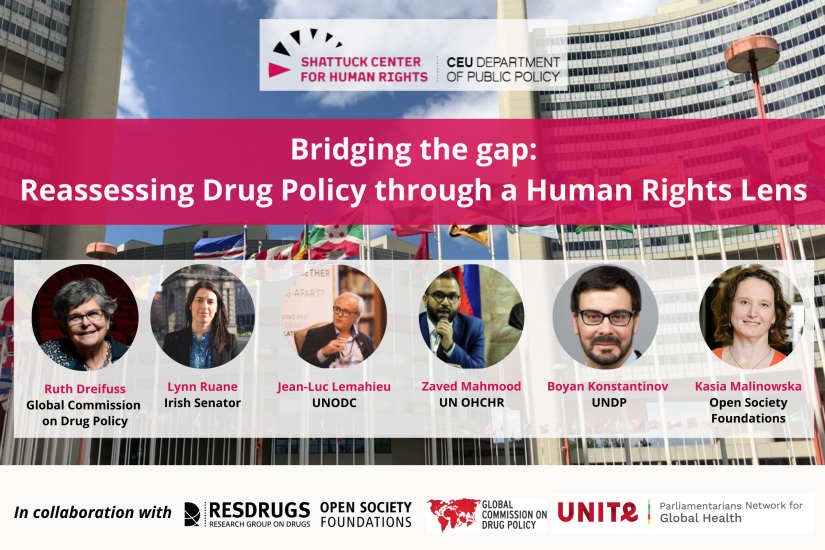
Responding to the harms associated with drug use and the illicit drug trade is one of the greatest social policy challenges of our time. All aspects of this challenge have human rights implications. However, the drug policy regime seems to run in parallel with the human rights regime. The three International Drug Control Conventions, first agreed upon in 1961 - which form the basis of the current drug policy regime - have historically been monitored and implemented by Member States guided by the United Nations Office on Drugs and Crime (UNODC).
There are growing concerns about the effectiveness of punitive drug policies and practices, reflecting on the human rights implications of such an approach. So, where do these two regimes meet? How? And what is the role of UN Agencies, Member States, and civil society at different levels (international, regional, national, and local)?
Calls for policy coherence led the UN System Chief Executives Board for Coordination, in 2018, to adopt a "Common Position" to support the implementation of a “truly balanced, comprehensive, integrated, evidence-based, human rights-based, development-oriented and sustainable responses to the world drug problem, within the framework of the 2030 Agenda for Sustainable Development.”
The document is UN-led and promotes inter-agency collaboration and opens the floor for different UN agencies, such as the United Nations Development Program (UNDP) and the Office of the High Commissioner for Human Rights (OHCHR), to contribute to charting a path that promotes more effective and humane drug control policies, supporting the commitment made in the context of the Sustainable Development Goals to leave no one behind.
Recently, the landmark report by the UN High Commissioner for Human Rights identified the human rights violations and respective challenges when it comes to drug policies and practices. It seems like the gap is beginning to be bridged, yet more UN system coherence and concerted action are needed.
This panel discussion will center around the question: What does the future of “drug control” look like for the UN System and Member States? It will discuss how different UN bodies (e.g., UNODC, WHO, UNDP, and OHCHR) can better coordinate expertise to complement each other and unlock better outcomes for the protection, respect, and fulfillment of human rights and, ultimately, the achievement of the Sustainable Development Goals (SDGs). The event will also reflect on how the UN system can strengthen participatory mechanisms for the meaningful involvement of civil society and community organizations in research and monitoring efforts to better inform policy deliberations.
The event is organized in light of the upcoming 67th session of the UN Commission on Narcotic Drugs (CND), which will be preceded by a High-Level Segment where Member States and UN agencies will assess the progress made in the implementation of all international drug policy commitments as set forth in the 2019 Ministerial Declaration.